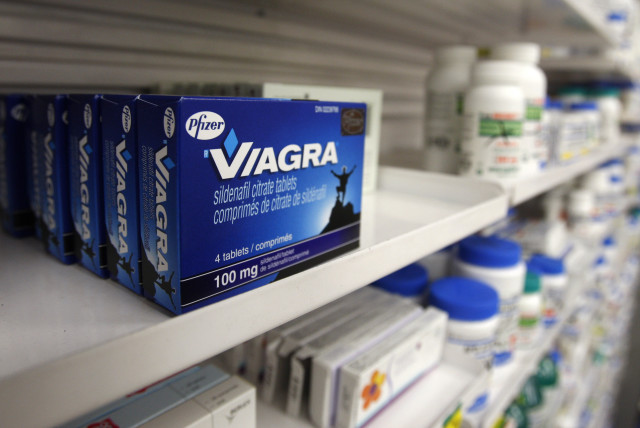Israeli urologist debunks myths about sex and old age

Impotence, erectile dysfunction, and Viagra are all talked about when it comes to having sex in your 50s, but what are the facts?
Since the dawn of time, sex has always been something that has interested is. After all, it's natural and it's healthy.
However, despite a healthy discourse surrounding sexuality that has developed in recent years, some issues surrounding men often don't get spoken about – and no, it's not about size.
Here are some major myths still heard in urology clinics, even in 2023.
Myth: It's harder for men age 50 and up to have sex
Fact: It is true that at least half of all men over the age of 50 experience erectile dysfunction to some extent. However, a healthy man can continue to maintain an erection late in life.
The problem is that this erection won't be as strong or last as long as it did in their 20s and 30s. Erectile dysfunction can be treated with shockwave therapy, injections, prescription drugs, certain devices, and even prosthetics.

Myth: Sex can be dangerous for an older man's health
Fact: The opposite is true, actually. Sexual activity has health-enhancing properties. In addition to increasing one's heart rate, a sexual climax (also known as an orgasm) releases oxytocin, a hormone that relieves tension and supports positive thinking.
If there are any physical limitations, such as joint pain or muscle pain, couples can still find ways to explore new positions and use pillows for support.
Also, for the record, 45% of people between the ages of 65-80 and who are healthy say they have stayed sexually active.
Myth: I can't talk to my general practitioner about my erectile dysfunction. They will be embarrassed, it will be awkward, and I can't do anything about it
Fact: Doctors today are highly trained in men's sexual health and erectile problems. As such, they understand that impotence and erectile dysfunction are sensitive and sometimes even stressful topics.
This fear is misplaced. Doctors are comfortable talking about erectile dysfunction and can help. As the first step on the road to recovery, a doctor will listen to your concerns, work to understand your symptoms and overall health and develop and personalized treatment plan to work for you.
When it comes to your sexual health, nothing is taboo at a visit to your urologist.
Myth: The only solution to erectile dysfunction is Viagra
Fact: While common medications like Viagra and Vialis have become popular, they aren't the only treatments available for erectile dysfunction.
Orally-ingested medications, although considered to be the magic fix for men with erectile dysfunction, can also have some very unpleasant side effects.
The pills are often a good place to start for treatments and increasing blood flow to the penis. However, other treatment options exist, such as injections, a penile implant, or certain devices may all be more appropriate depending on a number of different physical and medical factors.
Regardless, you should always consult your doctor and work with them to develop a treatment plan customized to your needs and overall health.
Myth: I just had a radical prostatectomy to treat my prostate cancer. Now I will have to live with erectile dysfunction for the rest of my life as a result
Fact: Testosterone restoration can help treat low libido and can even improve the effectiveness of drug treatment, but it can't cure it. Only a medical professional can accurately assess your testosterone levels.
Testosterone restoration also improves other aspects of one's health, such as cognition, memory, muscle mass, and overall mood.
Erectile dysfunction itself varies from case to case. While one man might not be able to achieve an erection at all, another man might have an erection that comes and goes, and a third man might have difficulty with performance during sex.
The textbook definition of erectile dysfunction is the inability to get and maintain an erection sufficient enough to engage in sex. As such, it is clear that this definition covers a wide range of situations.
If you think your erection isn't as strong as it used to be, you may want to see a urologist.
Dr. Shmuel Roizman is an expert at urological surgery at the Raphael hospital in Tel Aviv.
